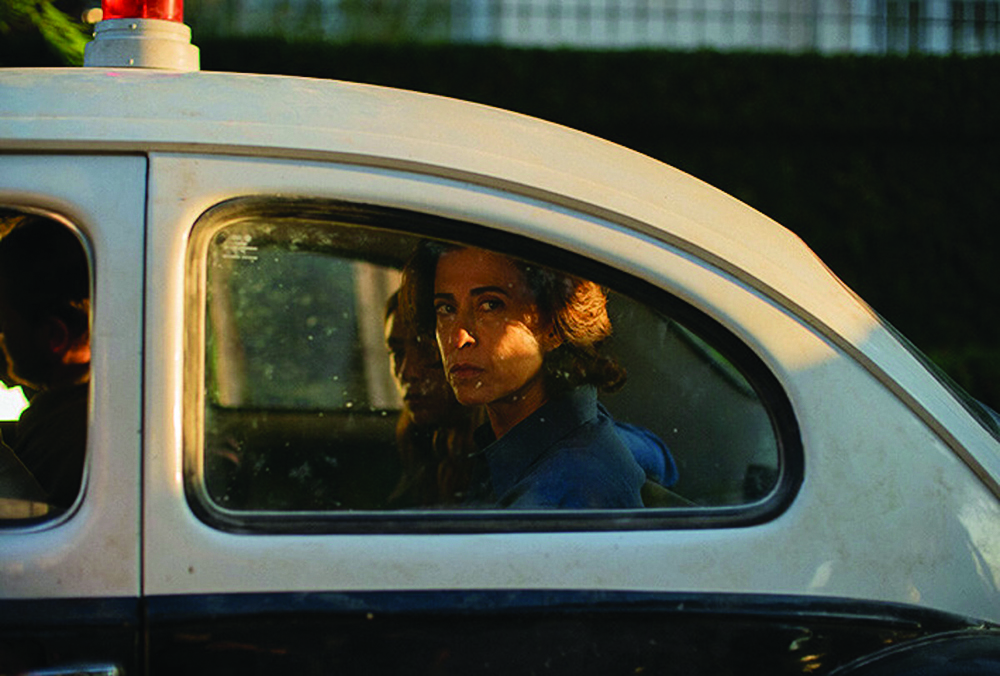In the opening frames of Walter Salles’ I’m Still Here, we’re introduced to the Paiva family of Rio de Janeiro through a montage of scenes of ordinary life in that fabled tropical city.
Kids playing futebol and volleyball on the beach, families picnicking, the discovery of a lost puppy, and some fun-loving teenagers smoking a joint and taking videos out the window of their car as they roll down the street—a portrait of carefree people in a warm country.
But before that reassuring sequence, back at the very beginning, the first camera shot foretells a different story. Eunice Paiva (played by Fernanda Torres), mother of five school-age children, is swimming in the gentle surf of Copacabana Beach when a noisy military helicopter flies over. The sight of it stirs a worried reaction on Eunice’s face. Rio de Janeiro in 1970 is under a military dictatorship.
At home, Eunice’s kids enjoy the rising expectations that go along with life in a comfortable middle-class family. The eldest daughter, Veroca (Valentina Herszage), is on her way to stay with friends in England. She and her younger teenage sisters all share a European outlook—keeping their passports current and listening to Serge Gainsbourg records. Even after Veroca and her friends get rousted one night by a police roadblock (searching for leftist students?), there’s the sense that these children essentially have the freedom to do what they want.
Their father, Rubens Paiva (Selton Mello), a former member of Congress now working as an engineer, is another story entirely. Much to the chagrin of his wife, soft-spoken Rubens maintains clandestine connections with people under government suspicion. Late-night phone calls are made, and envelopes are slipped under the door.
Storm clouds are gathering. Politically aware audience members will begin bracing themselves for the worst. The worst indeed happens, and Eunice bears the weight of events for her sheltered family.
As the grim government investigation unfolds, Eunice is put through the same drill that other Brazilian families are being subjected to—in common with residents of Argentina and Chile during the age of rightwing Latin American dictatorships in the 1970s.
At first, she’s questioned about communists and forced to study a large volume of mug shots of suspected subversives. On one of the pages she finds her husband’s photo. And then she finds her own. Later, Eunice and her daughter, Eliana, are taken away and temporarily imprisoned. When mother and daughter are finally released, Eunice is denied access to the family’s bank account.
I’m Still Here is not an action-packed thriller. Eunice does not join an underground resistance cell or run for office as an opponent of the regime. Her response to the threats against her family is non-violent, yet eventually effective. Quietly fighting on the home front, she starts a letter campaign and rouses public resistance to the government’s assault on her family’s civil liberties. I’m Still Here is essentially a true story. Paiva earned a law degree and became a human rights activist before her death in 2018.
Bertolt Brecht’s Mother Courage, one of the German leftist playwright’s most provocative dramas, could make a fitting brand name for Eunice as well, despite the differences between Brecht’s emblematic anti-heroine—a war scavenger—and the righteous survivor Eunice. Actor Torres has the face and demeanor of a true Mother Courage.
‘I’m Still Here’ is playing at the Smith Rafael Film Center, 1118 4th St., San Rafael. For times and tickets, visit rafaelfilm.cafilm.org.






